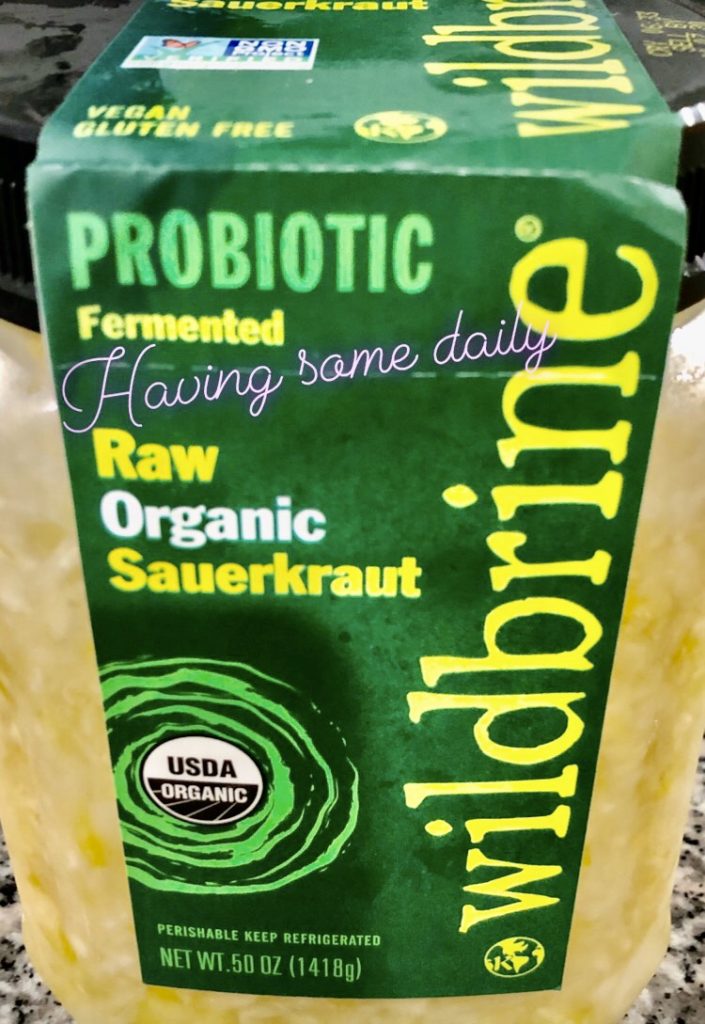I think most people are probably wondering how to boost their own immunity and avoid illness.
What I do to boost my immunity is to add some fermented foods, Vitamin C, Vitamin D,
zinc, selenium, B Vitamins, and fresh, organic vegetables and fruits to my daily eating plan. I recommend taking Liposomal Vitamin C, due to its high absorbency.
I feel one of the most important things you can do on a daily basis to boost immunity, is to consume some fermented foods.
Fermented foods date back as far as 1000 BC in the Middle East. Cleopatra (69–30 BC) was known to eat pickles made with vinegar, thinking they would make her more beautiful. Asian and Western cultures ferment many of their foods. In Asia, many people consume miso, kimchi, umeboshi, kombucha, and soy sauce. In Western cultures, fermented foods include unpasteurized, raw, organic: cheese, pickles, yogurt, relishes, coconut yogurt or kefir, apple cider vinegar, kombucha, and sauerkraut.
Fermented foods are more easily digestible, and they contain nutrients such as folic acid, riboflavin, biotin, thiamin, and niacin. Fermented foods increase the levels of usable amino acids, which help with the body’s absorption of calcium and muscle-building protein. They also have antioxidant properties.
Fermentation is usually done by mixing a food or beverage in a solution of vinegar and water, or salt and water. The food or beverage is left to sit and rest. Bacteria then begin to multiply, and the food or beverage ferments, creating beneficial bacteria we then ingest.
These beneficial bacteria contribute to positive flora growth in the intestinal tract, which supports our immune system and helps keep non-beneficial bacteria in control.
If no beneficial bacteria are present in our intestinal tract, then non-beneficial bacteria can take over, which may lead to health problems. (See my chapter on “Candida albicans” in my “How To Be A Healthy Vegetarian” book, 2nd edition.) Anyone who has taken antibiotics, which can wipe out good bacteria, should replenish the good bacteria in their system. Consuming fermented foods rich with beneficial bacteria is a way to do this, and it can make a huge difference in rebuilding a strong immune system.
I try to have at least one tablespoon of a fermented food or liquid every day, either in a meal or by itself. Oftentimes, I will have more than just that tablespoon, but we need some fermented foods or drinks on a daily basis to help replenish the beneficial bacteria in our body.
This is an excerpt from: “How To Be A Healthy Vegetarian” 2nd edition by Nancy Addison.
Copyright@nancyaddison2012
Medical Disclaimer: Information provided in this email is for informational purposes only. The information is a result of years of practice and experience by Nancy Addison CHC. However, this information is NOT intended as a substitute for the advice provided by your physician or other healthcare professional, or any information contained on or in any product label or packaging.
Do not use the information provided in this email for diagnosing or treating a health problem or disease, or prescribing medication or other treatment. Always speak with your physician or other healthcare professional before taking any medication or nutritional, herbal or homeopathic supplement, or using any treatment for a health problem. If you have or suspect that you have a medical problem, contact your health care provider promptly. Do not disregard professional medical advice or delay in seeking professional advice because of something you have read in this email.
Information provided in this email and the use of any products or services related to this email by you DOES NOT create a health counselor-client relationship between you and Nancy Addison, certified health counselor. Information and statements regarding dietary supplements have not been evaluated by the Food and Drug Administration and are not intended to diagnose, treat, cure, or prevent any disease.


